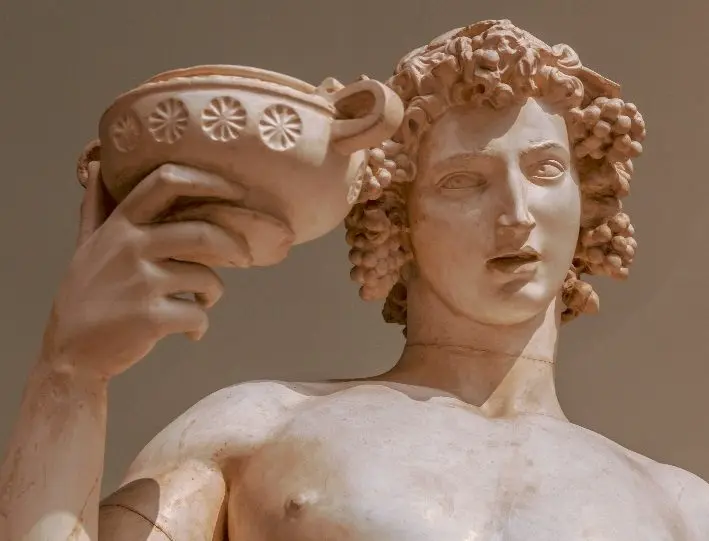Contents
A toast is a phrase or short speech delivered before draining a glass of alcoholic beverage. Usually in a toast it is indicated “for what” they drink – for the health of all or any of those present, love, luck, financial success. There may be less straightforward goals, such as “that our desires always coincide with our capabilities.” In an informal setting, it is enough to get by with one word – “toast” (in Russia “We will” or “We will start!”, “Cheers” in England, “Prosit” in Germany, etc.).
Etymology. There are several versions of the origin of the word “toast”:
- From the Turkic word “tostakan” – wooden dishes from which they drink koumiss and other drinks.
- From the English “toast”, meaning a toasted piece of bread. Perhaps because in ancient Rome on holidays it was customary to distribute warmed buns poured with wine to the poor. Or maybe thanks to the British tradition of placing a glass of water and a crispy toast in front of the speaker so that the speaker can refresh himself during a long speech.
The main purpose of the toast is to turn the joint drinking of alcohol into a demonstration of friendship, respect or good intentions. Depending on the country and culture, the ritual can vary from a few formal words, accompanied by a slight raising of a glass towards the hero of the occasion, to flowery and lengthy speeches, which is popular in the Caucasus.
The story of
The most popular legend says that the forerunner of toasts was the custom of knocking goblets so that part of the liquid would overflow from one vessel to another. So during the feast they checked if the drink was poisoned. If poisoned, then the one who poured the poison will also suffer. However, this is nothing more than a myth.
Modern researchers believe that the tradition of toasting began with ancient sacred sacrifices. People believed that for spilled wine, the gods would give the petitioner health, wealth, happiness – all that they wish each other in toasts.

Features of toasts in different countries
In the post-Soviet space, it is believed that without a toast, at least a formal one, only alcoholics drink. In Europe, this ritual is obligatory to be performed only at the most solemn events – a wedding, an anniversary, a buffet table on the occasion of the inauguration of the President or the presentation of a prestigious award. In such cases, the theme of the toasts is obvious – the hero(s) of the occasion.
In Russia, you can drink for anything – from the weather to the success of complete strangers, for example, the same Hollywood actors. I immediately recall the excitement around Leonardo DiCaprio receiving the Oscar film award – hundreds of liters of alcohol were drunk by the Russians, wishing the talented, but so unlucky Leo to win.

Until the toaster finishes his speech, you can’t drink. If he says “to the bottom” or “without clinking glasses” – this requirement is mandatory. Sometimes you need to stand up during a toast – for example, if they drink “for those who are not with us” or for a particularly respected person.
Sometimes a toast can be a form of social interaction and a sign of citizenship – for example, if a person defiantly refuses to drink for one of the guests, a country or a political party. In this case, the protesting participant in the feast should deliberately set the glass aside and remain seated when the others stand up. Such behavior is considered defiant and often becomes a reason for a serious conflict that turns into a fight.
Why drink toast
Any solemn event can be a reason for a toast: New Year, wedding, anniversary, farewell to retirement, housewarming, etc. The order of the toasts varies depending on the setting – for example, officers of the British Navy always drink first for something related to the sea. For what exactly depends on the day of the week. On Monday – for “our ships at sea”, on Tuesday – for “our sailors”, etc.
As for the order of toasts, there is no strict sequence in Russia. However, the first toast is always raised to the hero of the occasion, the second to his parents. The third toast is already highly dependent on the company – in a normal situation they drink for friends or love, but if the military, firefighters or representatives of another dangerous profession gathered at the table, then the dead comrades are remembered in the third place. The fourth toast is often proclaimed for men, and then there are no regulations, often the participants in the feast stop counting.
Rules of toast etiquette in Russia
- At large events, toasts are pronounced in turn, starting from the owner of the house, toastmaster, or the official manager of the event (at a wedding, this is usually a witness).
- A married couple can say one toast “from the family”. A woman has the right to skip her turn if she is not in the mood or has nothing to say.
- The first toast is pronounced no earlier than 10-15 minutes after the start of the feast.
- Solemn toasts begin with a greeting and / or gratitude to all those present.
While the toast is being made, do not eat, drink, talk, play with a smartphone, or be distracted in any other way.
- It is not necessary to drink the whole glass, you can only sip alcohol (if the phrase “to the bottom” has not sounded).
- In a small company, you need to try to clink glasses with everyone, at official events it is enough to touch glasses with your neighbors on the table or completely omit this part of the ritual.
- A good toast should be capacious, memorable and emotional. Humor is appropriate, but sarcasm or irony is not. If you can’t invent anything original, use a ready-made template, it will be better than mumbling with a glass in your hand.
- Clinking glasses with an empty glass or soft drink is considered offensive.











